Portable Home Sleep Apnea Test
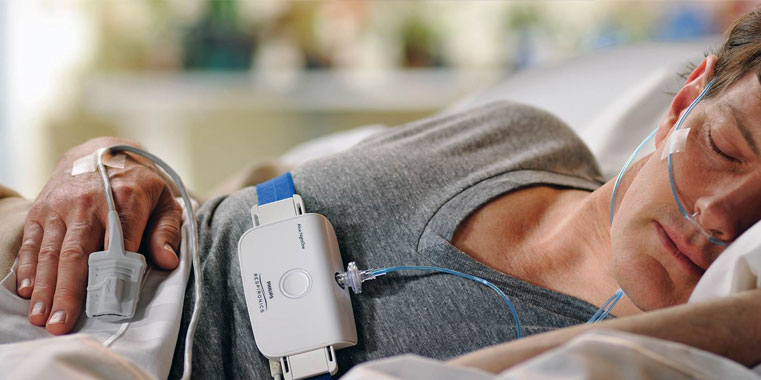 The home sleep testing equipment will collect information on your breathing patterns while you sleep. The equipment is designed to diagnose Obstructive Sleep Apnea.
The home sleep testing equipment will collect information on your breathing patterns while you sleep. The equipment is designed to diagnose Obstructive Sleep Apnea.
Obstructive Sleep Apnea is the major condition diagnosed by the Home Sleep Apnea Testing Kit.
Although economical and convenient, home sleep apnea tests, in most cases, cannot diagnose any other sleep conditions. This home sleep testing service can be provided by Delaware Sleep Disorder Centers in our sleep clinic or can be delivered directly to your home.
You will take the sleep test in the comfort of your home, our experts are available if you have any questions.

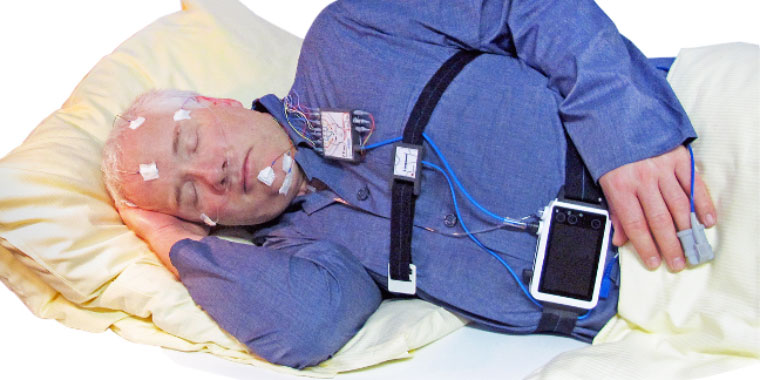 Depending on your signs/symptoms and/or any medical conditions; in lab testing may determine what type of sleep disorder a patient may be experiencing. Other considerations are affordability based on your current insurance coverage.
Depending on your signs/symptoms and/or any medical conditions; in lab testing may determine what type of sleep disorder a patient may be experiencing. Other considerations are affordability based on your current insurance coverage.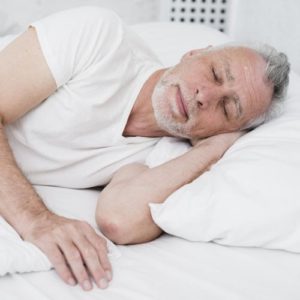 Sleep Disorder testing does not occur only at night. There are circumstances and disorders that require some testing to happen during the day.
Sleep Disorder testing does not occur only at night. There are circumstances and disorders that require some testing to happen during the day.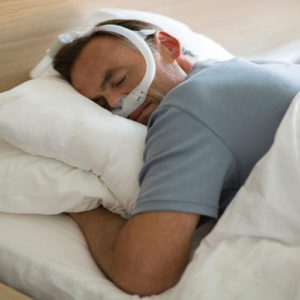 Sometimes individuals who have been prescribed PAP have difficulty tolerating the face piece, air pressure or other aspects of PAP therapy. In these cases, a PAP Nap can be of enormous benefit. The patient works with a specialist in sleep and PAP therapy over an extended period of time to address issues, find appropriate and comfortable equipment and work on desensitization.
Sometimes individuals who have been prescribed PAP have difficulty tolerating the face piece, air pressure or other aspects of PAP therapy. In these cases, a PAP Nap can be of enormous benefit. The patient works with a specialist in sleep and PAP therapy over an extended period of time to address issues, find appropriate and comfortable equipment and work on desensitization.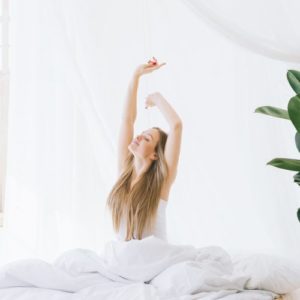 Delaware Sleep Disorder Centers Dream Clinic clinicians provide management from diagnosis to treatment. We can track patient’s compliance and ensure the provided therapy is suited for each patient’s needs.
Delaware Sleep Disorder Centers Dream Clinic clinicians provide management from diagnosis to treatment. We can track patient’s compliance and ensure the provided therapy is suited for each patient’s needs.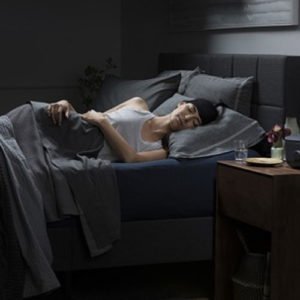 With our team’s comprehensive approach, clinicians from several specialties collaborate on therapies regarding what can improve your sleep. Our sleep specialists, in turn, lend insight on how poor sleep can affect different aspects of health.
With our team’s comprehensive approach, clinicians from several specialties collaborate on therapies regarding what can improve your sleep. Our sleep specialists, in turn, lend insight on how poor sleep can affect different aspects of health.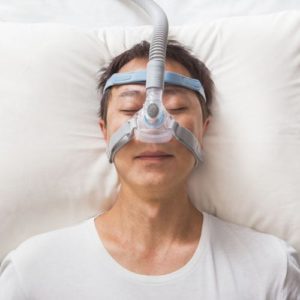 Delaware Sleep Disorder Centers can supply or coordinate ordering and deliveries of PAP machines and educate patients on the use and care of their machines. We also have a plethora of masks to ensure you can decide which type works best and is most comfortable to you.
Delaware Sleep Disorder Centers can supply or coordinate ordering and deliveries of PAP machines and educate patients on the use and care of their machines. We also have a plethora of masks to ensure you can decide which type works best and is most comfortable to you.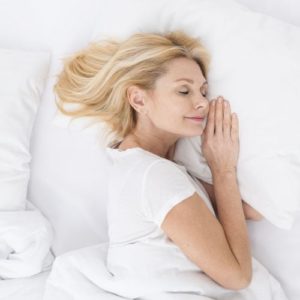 Obstructive Sleep Apnea is the major condition diagnosed by the Home Sleep Apnea Testing Kit. Although economical and convenient home sleep apnea tests in most cases cannot diagnose any other sleep conditions. This home sleep testing service can be provided by Delaware Sleep Disorder Centers in our sleep clinic or can be delivered directly to your home.
Obstructive Sleep Apnea is the major condition diagnosed by the Home Sleep Apnea Testing Kit. Although economical and convenient home sleep apnea tests in most cases cannot diagnose any other sleep conditions. This home sleep testing service can be provided by Delaware Sleep Disorder Centers in our sleep clinic or can be delivered directly to your home.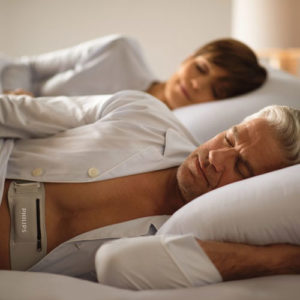 A strategy to treat positional sleep apnea. Breathing returns to normal when they sleep on a particular side. Positional therapy may involve wearing a special device around your waist or back. It keeps you sleeping in the side position or back position. Delaware Sleep as several sleep devices that can assist you with choosing the most effective and comfortable device.
A strategy to treat positional sleep apnea. Breathing returns to normal when they sleep on a particular side. Positional therapy may involve wearing a special device around your waist or back. It keeps you sleeping in the side position or back position. Delaware Sleep as several sleep devices that can assist you with choosing the most effective and comfortable device.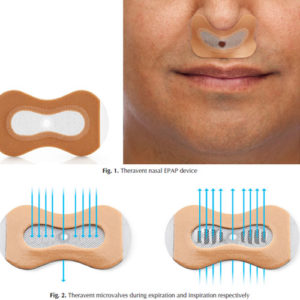 Expiratory positive airway pressure (EPAP) nasal devices provides a therapeutic option for obstructive sleep apnea (OSA). Patients with mild AHI of (5-15) to moderate OSA AHI of (15-30) who do not tolerate CPAP could be appropriate candidates for EPAP.
Expiratory positive airway pressure (EPAP) nasal devices provides a therapeutic option for obstructive sleep apnea (OSA). Patients with mild AHI of (5-15) to moderate OSA AHI of (15-30) who do not tolerate CPAP could be appropriate candidates for EPAP.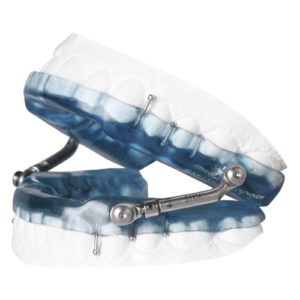 Oral appliance therapy can be an effective treatment option for snoring and obstructive sleep apnea (OSA). A custom-fit oral sleep appliance can improve your sleep, restore your alertness and revitalize your health. Worn only during sleep, an oral appliance fits like a sports mouth guard or an orthodontic retainer.
Oral appliance therapy can be an effective treatment option for snoring and obstructive sleep apnea (OSA). A custom-fit oral sleep appliance can improve your sleep, restore your alertness and revitalize your health. Worn only during sleep, an oral appliance fits like a sports mouth guard or an orthodontic retainer. 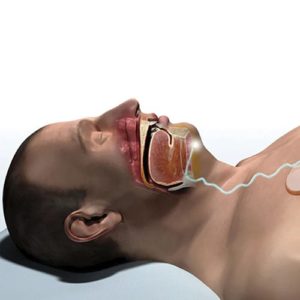 Inspire Upper Airway Stimulation therapy is an FDA-approved treatment for some people with moderate to severe OSA who are unable to tolerate or get relief from continuous positive airway pressure (CPAP). In contrast to CPAP, Inspire therapy is implanted inside the body and works with a patient’s natural breathing process.
Inspire Upper Airway Stimulation therapy is an FDA-approved treatment for some people with moderate to severe OSA who are unable to tolerate or get relief from continuous positive airway pressure (CPAP). In contrast to CPAP, Inspire therapy is implanted inside the body and works with a patient’s natural breathing process. 
